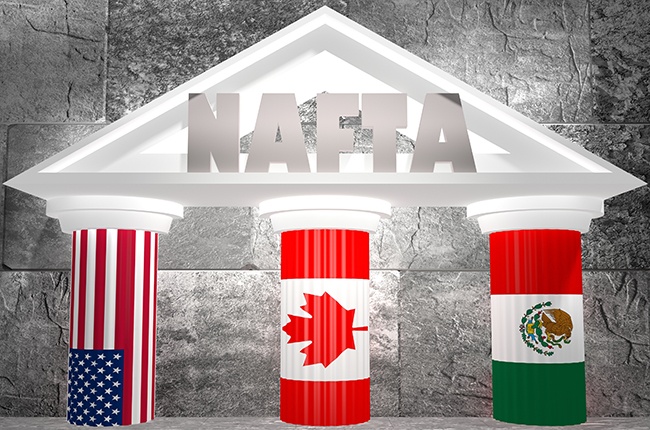 Free trade is being blamed for a lot of the world’s woes, but is the North American Free Trade Agreement (NAFTA) really the “worst trade agreement ever,” as President-elect Trump has stated? In an article titled “The NAFTA Intellect Disconnect: Actual Costs and Benefits versus Popular Perceptions,” published by the Mosbacher Institute for Trade, Economics, and Public Policy in the most recent issue of The Takeaway, Texas A&M University Professor Raymond Robertson revisits the evidence surrounding NAFTA, in particular, and free trade agreements, in general.
Free trade is being blamed for a lot of the world’s woes, but is the North American Free Trade Agreement (NAFTA) really the “worst trade agreement ever,” as President-elect Trump has stated? In an article titled “The NAFTA Intellect Disconnect: Actual Costs and Benefits versus Popular Perceptions,” published by the Mosbacher Institute for Trade, Economics, and Public Policy in the most recent issue of The Takeaway, Texas A&M University Professor Raymond Robertson revisits the evidence surrounding NAFTA, in particular, and free trade agreements, in general.
Robertson, a professor of economics and government at the Bush School of Government and Public Service, begins by noting that if NAFTA is judged by its stated goals, it has been very successful. He writes, “It is clear that since NAFTA, trade and investment have significantly increased between the three NAFTA countries. In particular, goods traded between Mexico and the United States increased by more than a factor of five between 1994 and 2015.”
https://today.tamu.edu/2015/12/22/the-trans-pacific-partnership-a-positive-or-negative-for-workers/
He also addresses whether the United States benefits from trade agreements like NAFTA, acknowledging that imports have been associated with job losses in some hard-hit areas and industries, but also says that exports are unambiguously associated with job gains. Furthermore, he states that “the most accurate way to think of the NAFTA economic area is as one integrated economy rather than three separate ones.” Robertson argues that rather than thinking of Mexico as a competitor, it should be considered a partner in the United States’ national production process–where Mexican and U.S. workers are complements, and not substitutes, in production.
Robertson finds that overall, NAFTA’s effects have been small but positive for both Mexico and the United States and that the number of workers who have been adversely affected is in the thousands while the number of people who benefit from trade runs in the millions. He concludes that, “Free trade agreements are a proven way to improve economic conditions for both the United States and our trading partners.”
The full article can be found at bush.tamu.edu/mosbacher/takeaway.
#####
Media contact: Susan Robertson, Bush School, srobertson@tamu.edu or (979) 862-8845




